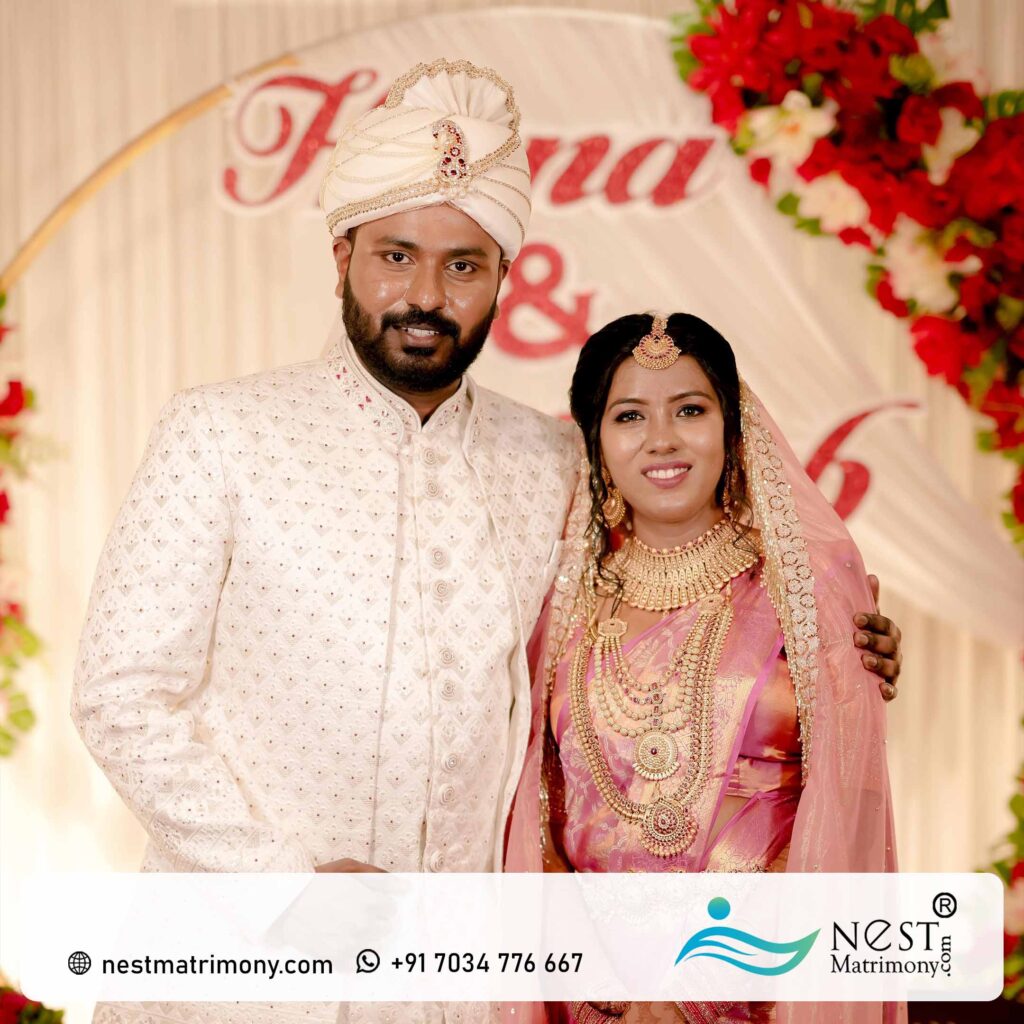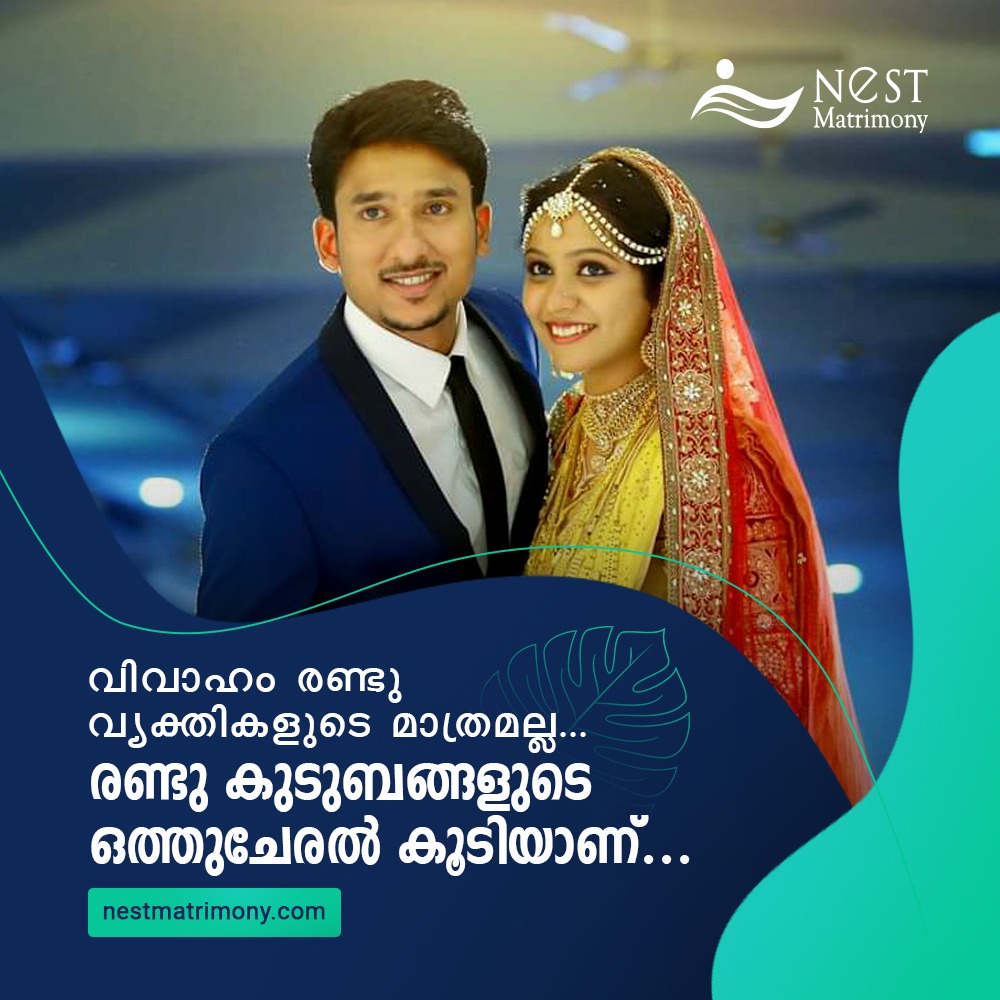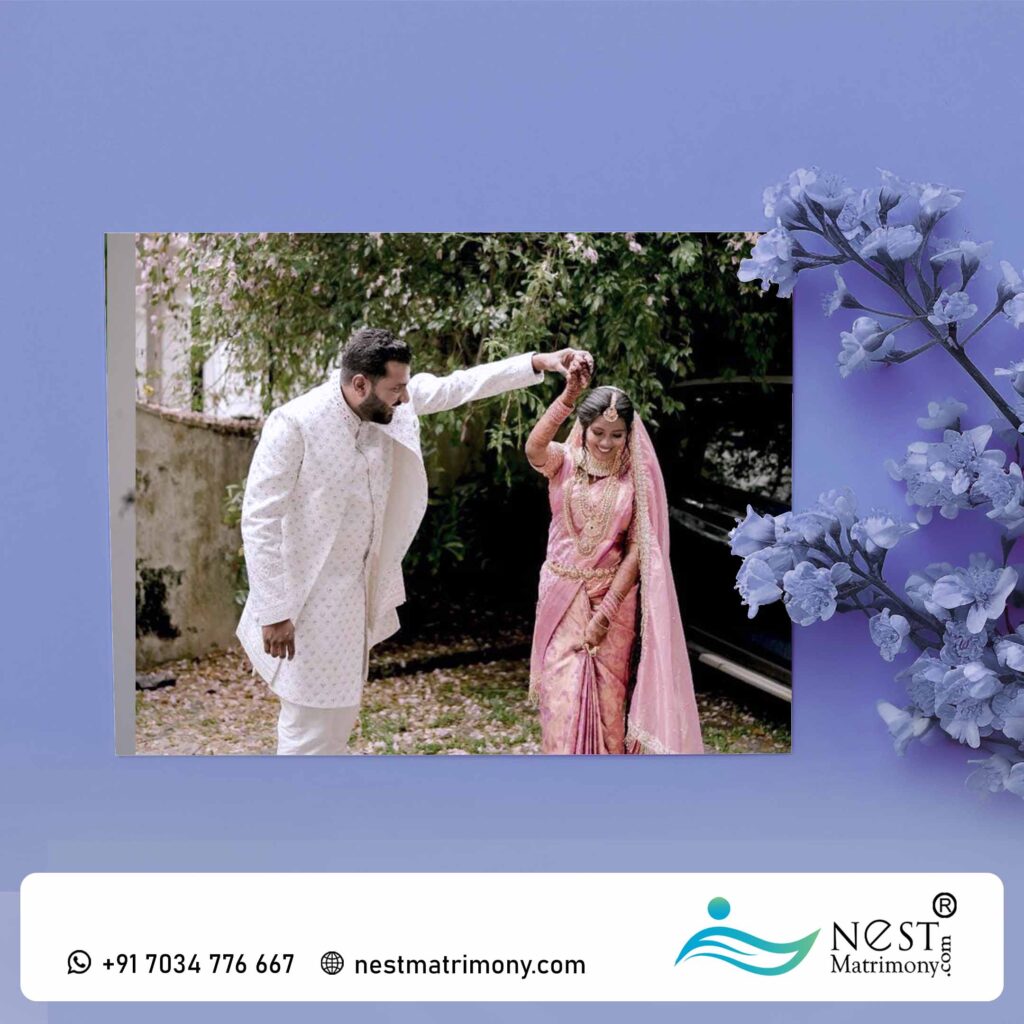KERALA MUSLIM BRIDE & GROOM | MUSLIM MATRIMONY REGISTRATION
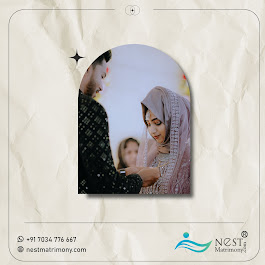
In Kerala, Muslim weddings, known as "Nikah," are deeply rooted in Islamic traditions while also reflecting the rich cultural heritage of the region. The ceremonies are simple yet elegant, focusing on the religious aspects and the significance of family and community.
Kerala Muslim Bride:
- Attire: The bride typically wears a traditional outfit like a "Kasavu Saree" or a heavily embroidered lehenga. She adorns herself with gold jewelry, which is a significant part of Kerala weddings.
- Customs: Before the wedding, there are various pre-wedding rituals like the Mehendi (henna) ceremony, where intricate designs are applied to the bride's hands and feet.
- Role: The bride's role is considered very sacred, and she is often given a lot of respect and blessings from both families.
Kerala Muslim Groom:
- Attire: The groom usually wears a traditional sherwani or a kurta-pajama, often accompanied by a turban. In some cases, a simple dhoti or mundu is also preferred.
- Customs: The groom's arrival at the wedding venue is marked with traditional music and celebrations. He is welcomed with great honor by the bride's family.
- Role: The groom is seen as the head of the family and is responsible for leading the prayers and ensuring the marriage is conducted as per Islamic laws.
Muslim Matrimony Registration
Matrimony registration is a crucial step in formalizing the marriage as per the legal and religious requirements. Here are the key aspects of Muslim matrimony registration in Kerala:
Steps for Muslim Matrimony Registration:
- Nikah Ceremony: The marriage is solemnized through the Nikah ceremony, where the bride and groom, in the presence of witnesses, declare their consent to marry each other.
- Nikah Nama: A marriage contract known as "Nikah Nama" is signed by both parties and the witnesses. This document contains details about the dowry (Mahr) agreed upon, the names of the bride and groom, and other relevant information.
- Registration with Local Authorities: After the Nikah ceremony, the marriage needs to be registered with the local municipal office or the sub-registrar's office. Both the bride and groom, along with their families, need to be present with the necessary documents.
- Documents Required: The key documents required for registration include:
- Identity proofs (Aadhar card, passport, etc.)
- Address proofs
- Photographs of the bride and groom
- The original Nikah Nama
- Witnesses' identity proofs
- Certificate Issuance: Once the registration process is complete, a marriage certificate is issued. This certificate serves as a legal proof of marriage and is essential for various legal and administrative purposes.
Importance of Registration:
- Legal Recognition: Registration gives the marriage legal recognition and ensures the rights of both partners are protected.
- Documentation: It provides official documentation that may be required for visa applications, property claims, and other legal matters.
- Social Security: Registration also ensures that the marriage is acknowledged by the government, which can be crucial for various social security benefits.
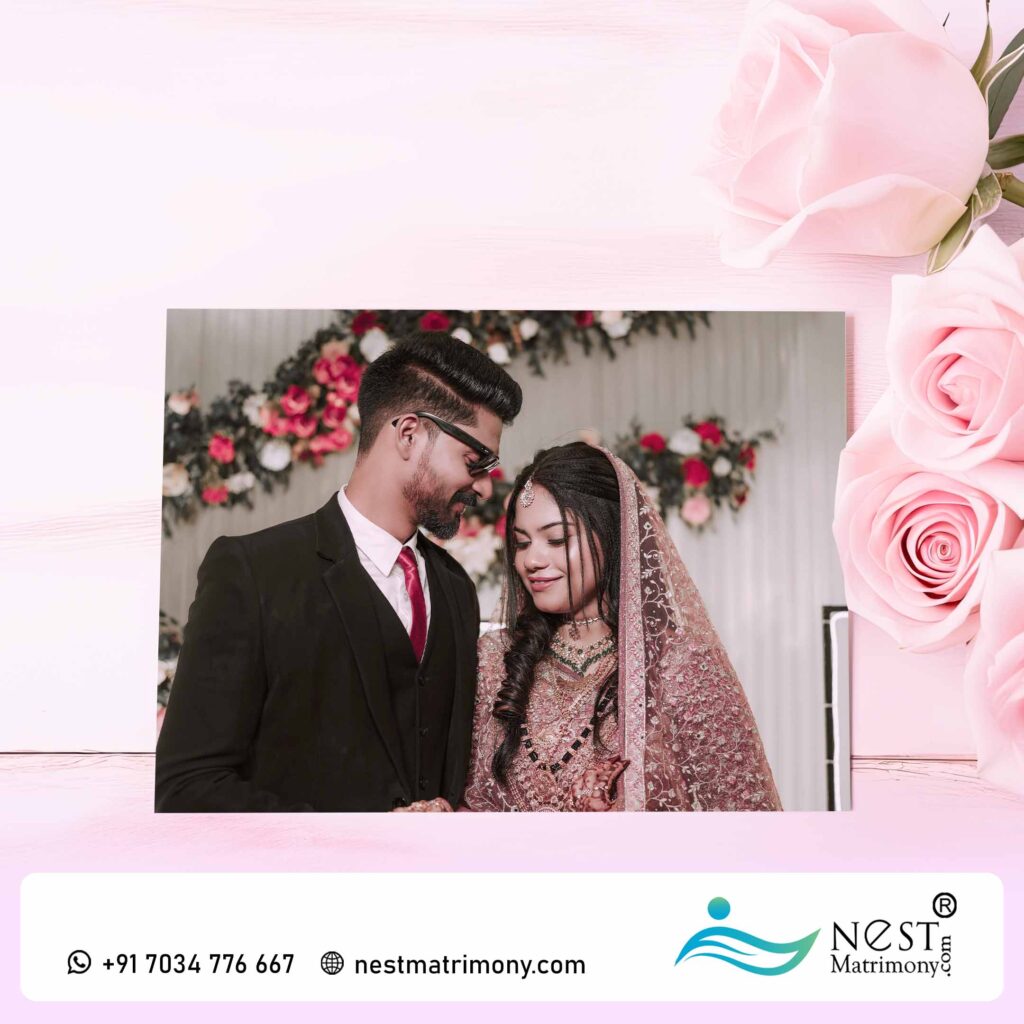
Summary
Kerala Muslim weddings are a blend of traditional Islamic practices and local customs, emphasizing simplicity, elegance, and family values. The bride and groom play significant roles in the ceremonies, reflecting their commitment and respect towards each other. Matrimony registration is a vital process that ensures the marriage is legally recognized, protecting the rights of both partners and providing necessary documentation for future legal and social needs.
